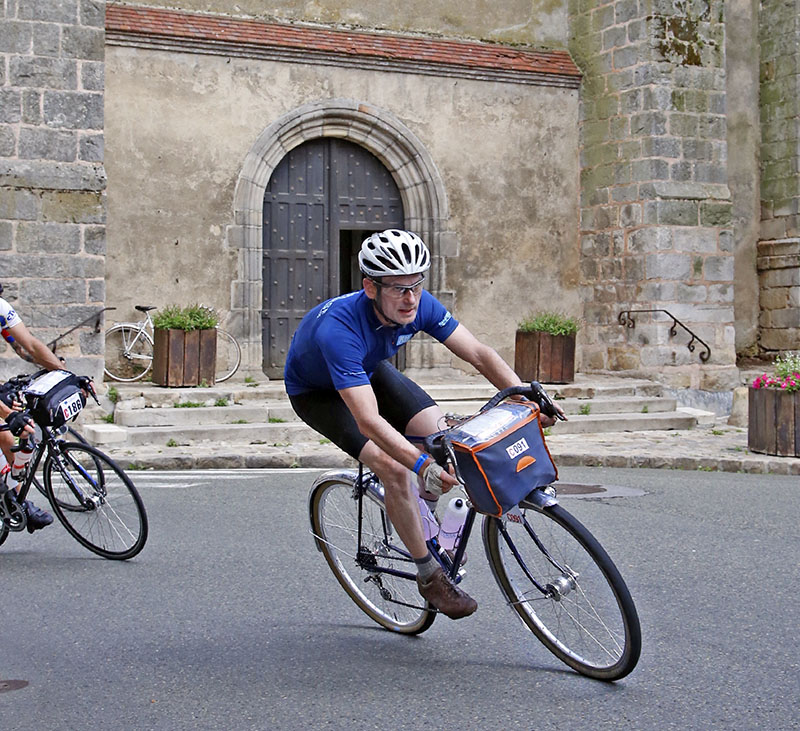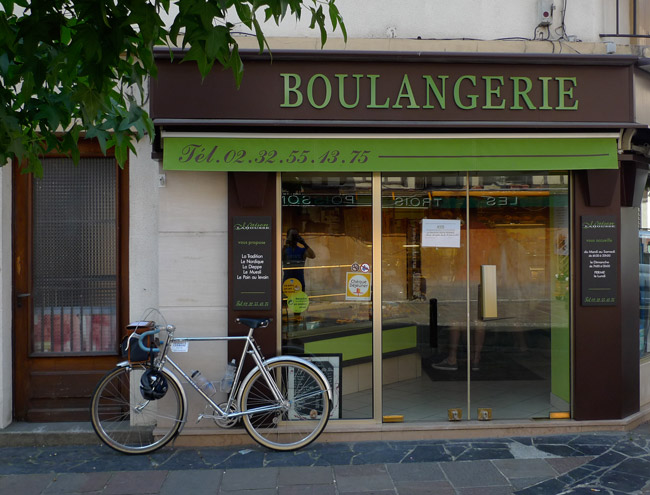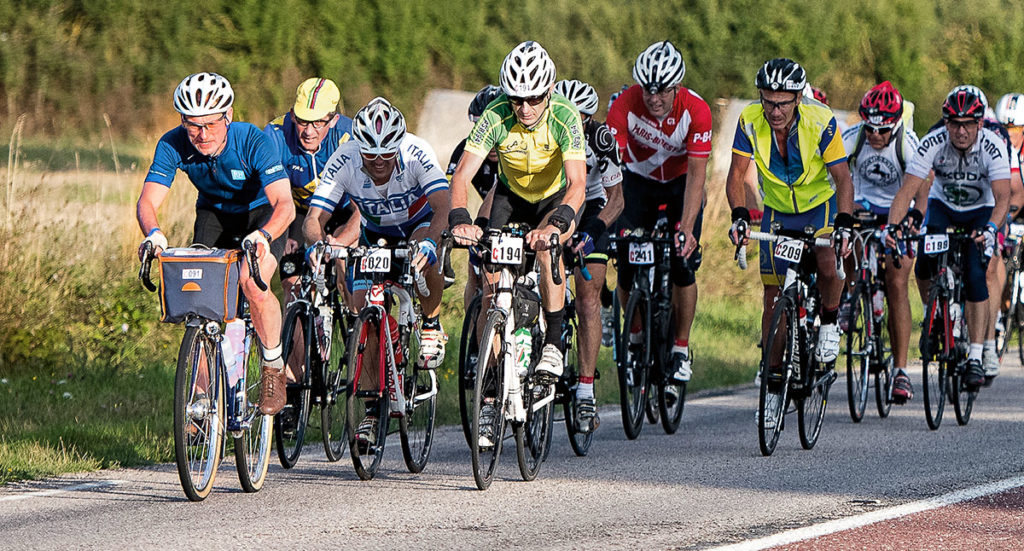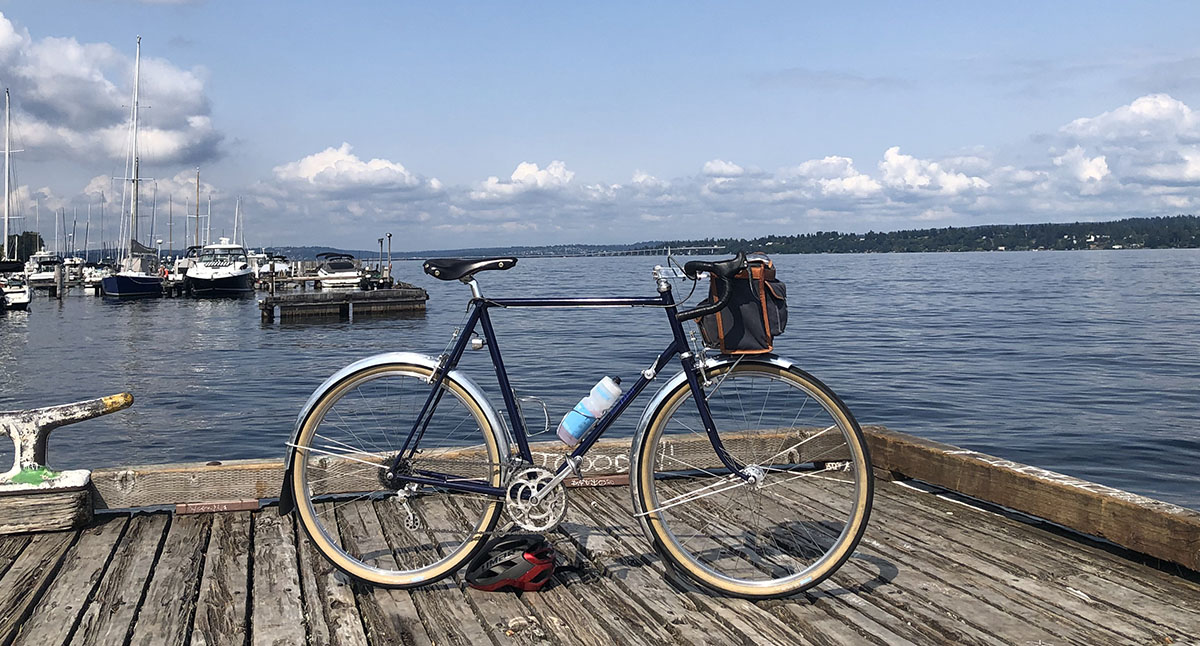Last-Minute PBP Preparation
The training is done. The bike is (almost) ready. The time to go to Paris for the 1200 km (750-mile) Paris-Brest-Paris is approaching rapidly. Over the last year, we’ve talked about preparing for this big ride (or any other) in our ‘Road to PBP’ series in Bicycle Quarterly. The days before leaving tend to be hectic with last-minute preparations. Here are a few things that don’t take much time, but will make a very real difference in your PBP experience.
Bike Prep:
- Shifter cables: Shifter cables bend sharply inside the shift lever. Over time, this stresses the little wires until they break. At first, the fraying shifter cable makes your indexing a little less crisp. It doesn’t seem like a big deal, but the cable will break eventually—usually in the middle of the night on the hilliest section of PBP (where you shift the most). Then you derailleur shifts into the largest gear. You limp to the next control, where the mechanic will replace the cable—once they’ve dealt with all the bike problems of the people who arrived in front of you. New shifter cables don’t cost much and are (relatively) easy to install. It’s a good precaution.
- Brake pads: Make sure your brake pads have plenty of life left and are aligned correctly. With rim brakes, poorly aligned pads can cut your tire. With discs, the constant ‘chirp, chirp’ will spoil the fun of riding in the quiet night.
- Tires: If you’ve qualified and trained for PBP, you’ve used up your tires with all the miles (or kilometers) you’ve ridden. Your tires may seem fine, but you’ll put another 1200 km on them. And with tires, they are usually fine until they suddenly wear so thin that you get one flat after another. Starting PBP on a fresh set of tires gives you peace of mind. If you order a set of tires from Rene Herse Cycles this week, put in the notes “For PBP.” We’ll prioritize your order and ship them out to you ASAP. (Tire orders only, please. Cranks, brakes, fenders, etc., require assembly and take a bit longer.)
- Test ride: After you do your last-minute adjustments, make sure you go for a ride. Shift through all the gears. Brake hard front and rear. Turn on your lights. It’s easy to fix things now.

Travel Prep:
- Outlet converters: It’s easy to forget, but Europe uses different outlets. (They also use different voltage, 220V vs. 120V in North America, but that’s less of an issue with modern electronic devices.) You’ll need a converter so your plugs fit into European outlets. To make things worse, Europe isn’t completely standardized: Different countries use (slightly) different outlets. Get the right converters, rather than chase around Paris for a shop that has them while your phone is running low and you have no way of charging it.
- Get cash: Most businesses in France take credit cards, but cash is usually easier and quicker. Take about 200 Euros with you for PBP, and things will be a lot easier.

4 Phrases of French
Imagine a French randonneur coming to the U.S. for a big ride. They rush into a convenience store and shout at the cashier: “Bonsoir monsieur. Où est-ce que je trouve vos petits pains au chocolat, s’il vous plaît ?” The clerk will be surprised and maybe taken aback by this sudden, unexpected outburst. Perhaps they took a year or two of French in college, but that was years ago, and they aren’t prepared for this! The French rider is just asking politely where they’ll find a chocolate croissant, but that is lost in translation. That is the situation if you enter a bakery in Brittany and speak English.
Imagine the poor employee at the bakery. It’s either early in the morning, and they’re half-asleep. Or they’re tired after a long day. Their job is pretty much routine. Then suddenly a person enters who’s obviously a stranger, and who will complicate their life. For a moment, they wish they had called in sick, or closed for lunch—anything to avoid this awkward situation.
It’s a common assumption that everybody in Europe speaks English. If you’re in tourist areas, that’s usually the case. But PBP will take you into ‘La France Profonde’ (best translated as ‘deep into France’). French customs are different. The French live close together—even in rural villages. France has strict rules of how to respect each other’s privacy, and how to enter into a conversation. Fortunately, that makes it actually easier for foreigners: You need only four French phrases to turn yourself from ‘stranger’ to ‘nice visitor who appreciates our culture.’ Here’s how.
Let’s say you enter a bakery:
- “Bonjour.” Any French conversation starts with ‘knocking on the door.’ This may seem like a needless formality for North Americans, but it’s essential in France. If you start any conversation with a cheery “Bonjour,” you’re 95% there. Your accent will give you away as a stranger, but in a non-threatening way. This gives the other side time to prepare for what comes next.
- Point at a croissant or whatever else you want, smile and say: “s’il vous plait” (pronounced: seel voo play). Following any request with ‘please’ is another one of those French formalities that soften the intrusion into somebody’s private space. You’re not barking an order, you’re making a polite request.
- Pay the amount shown on the cash register. If you’re struggling with Euro coins, just put all your coins on the little plate that serves for that purpose, and the employee will take what they need.
- Say “Merci beaucoup” and “Au revoir” before you leave.
If you respect these simple rules, you’ll find that the French are incredibly friendly and welcoming. It’s worth practicing, because in the moment, you’ll be nervous, and it’s easy to blurt out: “Good Morning! Can I get a croissant?” with predictable results.

Training
What about your last week of training? My recommendation is to skip it! Any hard or long rides from now will just fatigue your body, rather than make it stronger. To get your body into top shape, you need to rest. Your goal is to line up at the start in Rambouillet with fresh legs, feeling eager to ride your bike.
Once you’re on the road, all the hard work and hectic preparations will pay off. You’ll settle into the ride, marvel at the beautiful countryside, meet people from all over the world, and have a ride you’ll remember fondly the rest of your life.



